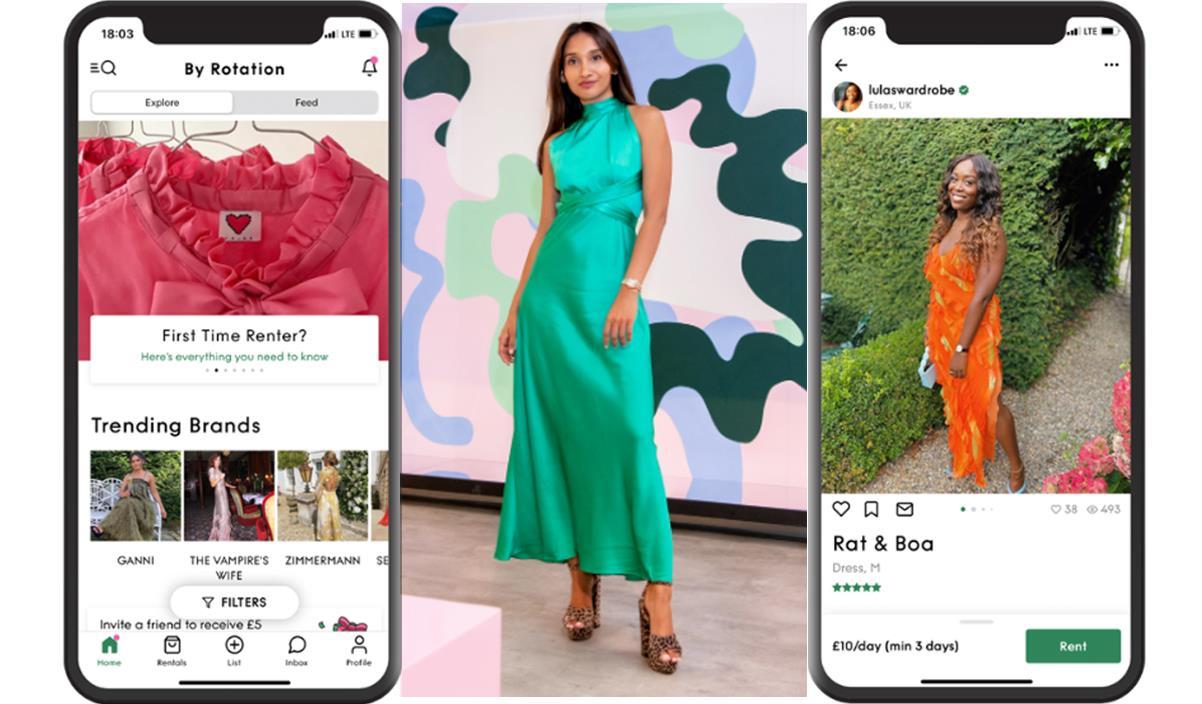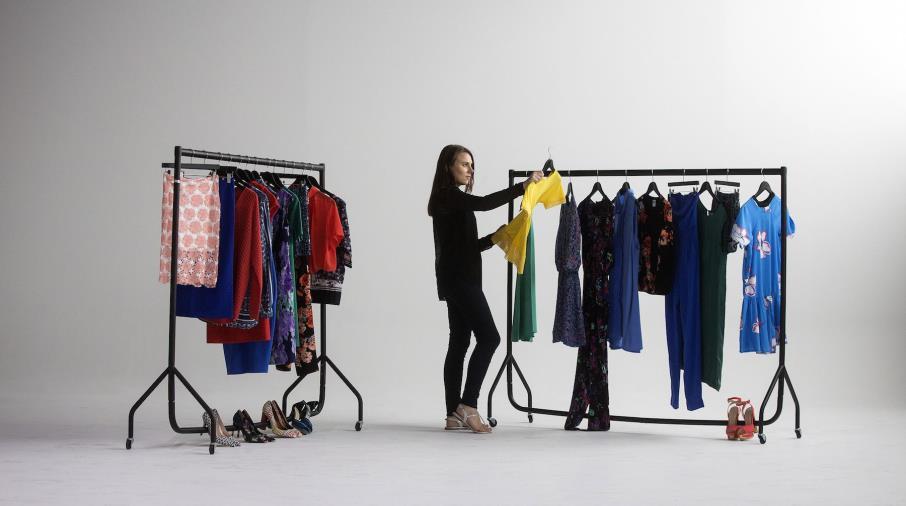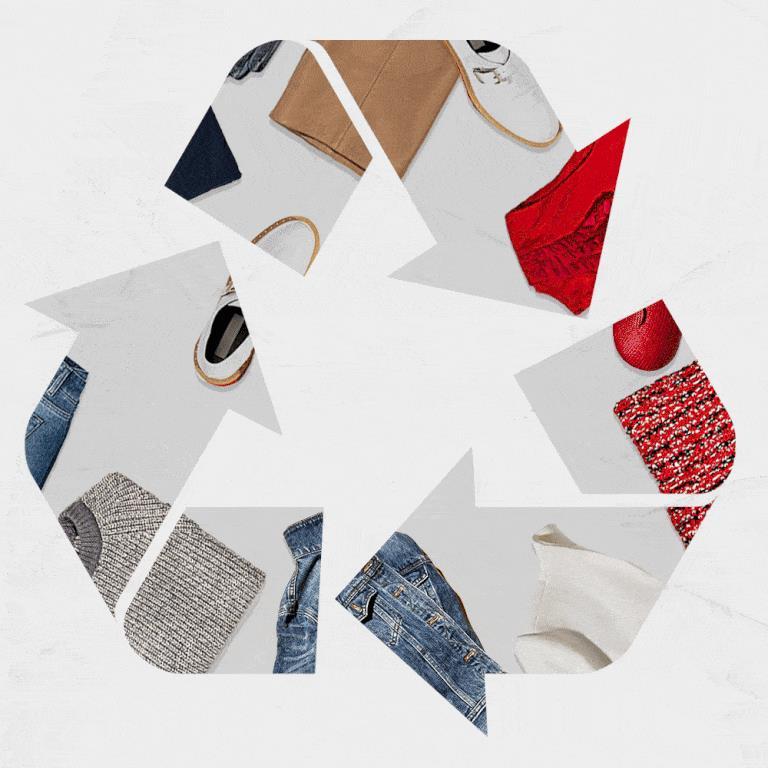
5 minute read
Fashion rental & resale
Fashion rental
Providing the perfect solution to mitigating fashion’s environmental impacts, fashion rental services have gained attraction over the last couple of years, offering customers daily/weekly loans: either based on consignment, subscription-based plans where members pay a fixed fee for a specific number of items each month or even peer-to-peer services where private lenders and renters manage the process themselves (includes taking care of the cleaning) and either post or meet up, to exchange items
Advertisement
Much of the attraction has been in the US, where there the concept of renting clothing has already been widely adopted, thanks to the pioneering platform Rent the Runway Rent the Runway’s business model specialises in offering members the ability to rent designer clothes for a fraction of the cost to buy Which as this market expands lends the question of how will fashion rental will affect luxury brands in the long-term?
Much until early 2019, renting clothes was a concept primarily reserved for special occasions at least in the UK Yet several tech-savvy entrepreneurs who spotted its potential, have now brought it to UK stores and offered a different approach to renting fashion Eshita Kabra-Davies (Kabra-Davies swapped finance for fashion after seeing the sheer volume of textile waste in her homeland of Rajasthan, India) founded the rental platform By Rotation, which launched in October 2019 and quickly rose to popularity thanks to its roster of cult brands and influencer approved items
By rotation’s mission is to transform how people consume fashion according to founder Eshita Kabra-Davies Unlike Rent the Runway, which operates on a subscriptionbased model, By Rotation operates on a peer-to-peer service. With type of service there is little interference from company, unless of course there a problem from the business. However, the platform does offer a ‘wardrobe management’ service to their time-constraint and wardrobe-heavy users
Regarding the pricing of items, how much an item is selling for depends on what the lender asks for and this applies the same for how long you can keep items which varies (most have a minimum of three days) There is no statute on how old or new items are, it just must be in good condition The main difference between this new wave of fashion rental and its old reputation for solely formal fancy dresses is that these are items to wear every day
Under this service, the full rental process, including listing, renting and cleaning is coordinated by, By Rotation For this the company charge a 15% commission fee from the lender and a 15% commission fee when a transaction occurs- plus any cleaning or damages If users choose to manage the process themselves the company in that case will only take a 15% commission fee
Through app, users can gain access to an array of brands and gives them the chance to monetise their own clothes Speaking of monetisation, the top lenders on the platform are making sums of £20,000 per year Proving that renting is not just good for the environment, its brilliant for our bank balances, too as either a side-hustle or fulltime revenue venture Earning potential is entirely dependent on what and how many items users rent out, but By rotation recommends listing items for 5% of their original retail price On this basis you would need to rent out each item 20 times to make you money back in full Users receive a month income report detailing their rental earnings, provided there has been a minimum of 1 rental in the calendar month
My Wardrobe HQ’s re-sale integration also allows renters to buy a piece for a fraction of the original retail price if they happen to love it after renting With My Wardrobe HQ’s business model, they are responsible for handling items and authentication from independent sellers and unsold stock from brands (includes transportation via couriers and cleaning) Due to this they charge a 40% commission fee for their services
Both By Rotation and My Wardrobe HQ make their money from taking a percentage of the rental fee. The environmental benefits of a circular model, compared to wear-once consumption, are of course the driving factor behind many brands within the fashion rental space However, there are concerns over carbon emissions involved with more frequent cleaning and transportation Yet in most cases these are minimal, offset or in the process of being improved Many platforms, including My Wardrobe HQ, use recycled packaging, green couriers and ozone cleaning- a process that eliminates bacteria and viruses
Meanwhile, peer-to-peer services encourage their users to exchange in person where possible, and to care for items using eco-friendly methods (although during the height of the Covid19 Pandemic, By Rotation issued guidelines and encouraged people not to meet) But if rental apps are encouraging people to do more energy-intensive dressing up than they otherwise would, it's hard to see how that sums to the levels of sustainability required to actually reduce fashion’s environmental impacts on the planet
Aside from the environmental aspectspositive and negative- of renting, peer-topeer models such as By Rotation thrives by creating a community of like-minded individuals who engage with one another: through organising face-to-face events and curated content that allows users to reconnect with their clothes and local communities
Hence why By Rotation claim to be a social fashion rental app as not only are they in the process of redefining ownership and embracing a sharing economy but creating a community of like-minded individuals who all share the same goal to consciously consume fashion (and monetise their wardrobes)
Rental sites don’t just cater working professionals and Gen Z- there are startups targeting parents Bundlee and thelittleloop are rental services for baby and toddler clothes, while Kids O’clock is a platform renting secondhand designer clothes for kids Launched in early 2021, it was founded by former Net-A-Porter and Moda Operandi buyer, Laura Roso Vidrequin Such services minimise waste and clutter in the home, as well as saving users' money
The advancements taking place have encouraged big name brands to start to see the potential of the pre-used marketplace In March 2021, Ralph Lauren became the first luxury label to launch subscription rental service, “The Lauren Look”, in North America Starting at $125 dollars a month, the size inclusive subscription allows members to rent looks from the most recent Ralph Lauren collections Once clothes have reached the rental capacity, they will be donated to Delivering Good, a non-profit organisation that provides families who are impacted by poverty and tragedy with new clothes hile the fashion rental field is already quite a competitive patchwork, it's important to consider the second-hand fashion sales market, too- which at least indirectly competes for customers who may be weighing up whether they really want to splurge £75 to rent a designer piece for a couple of days versus spending less to buy a second-hand (probably not designer) fashion item on Depop or Vinted Or even, splash out more than £75 on a secondhand designer piece that has been listed on a luxury resale platform like Vestiaire Collective


In short, consumers are spoilt for choice for alternatives to buying brand new. But Kabra argues that fashion rentals and resale are different domains and more like complementary markets On By Rotation lenders tend to be listing items that are new season “and they don’t want to sell these pieces, so we end up having nicer pieces, basically, than all these other platforms where, let’s face it even if it’s Vestiaire Collective, people are trying to get rid of their stuff
This is largely down to the fact that By Rotation only allows mid to luxury brands on their app, so the expectation is that you only list pieces of high quality, rather than items that are old with several defects which are more likely to be sold on resale sites such as Depop or Vinted And since such items are usually priced higher, people most likely have saved up for an investment piece and then listed it to share with others on the app, in order to recoup the cost of this purchase
Even if there is an overlap between rental and resale, By rotation’s particular focus means that users who wouldn’t mind selling a designer piece (for the right price) on a resale platform like Vestiaire Collective can list it for renting on By Rotation’s app in the meanwhile- with the chance to make money loaning it out while awaiting a sale according to Kabra









